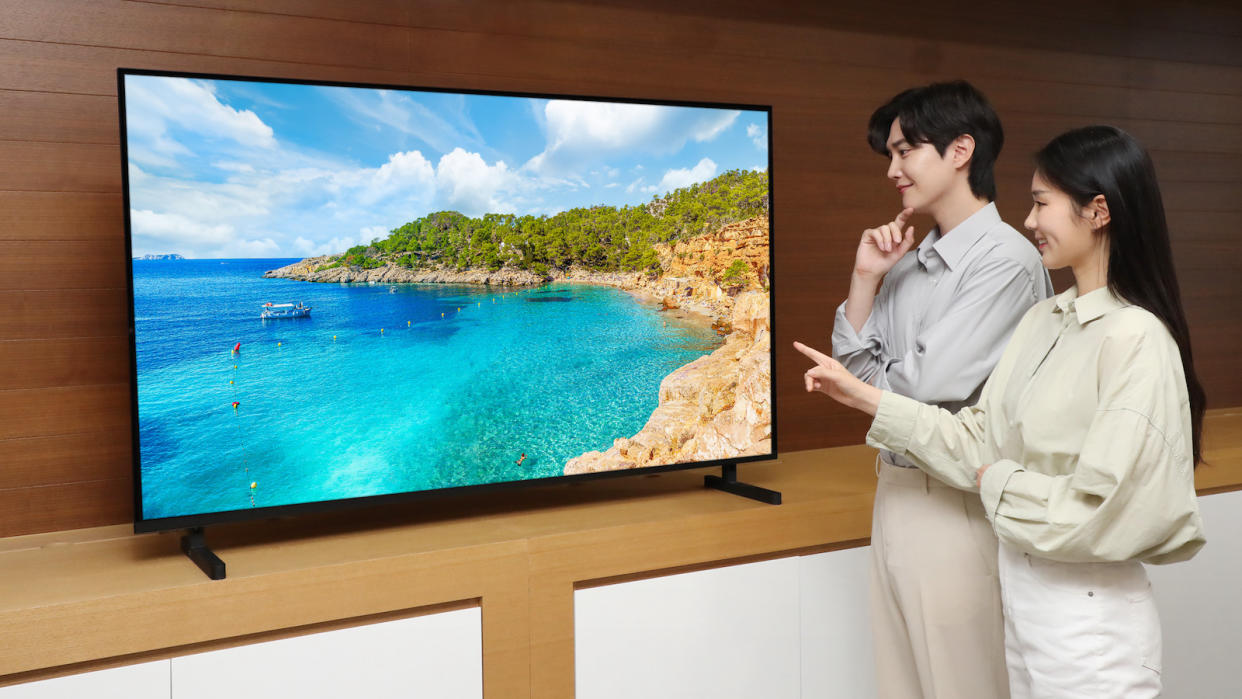The Samsung S95D QD-OLED TV will almost certainly have a 3000-nit panel

We are expecting Samsung Electronics to announce at least some of its new 2024 TVs tomorrow at CES, but we now have a very good idea of what to expect courtesy of a single paragraph buried deep in the latest press release from Samsung Display, the panel-producing arm of Samsung.
Said paragraph states that Samsung Display has developed a third-generation QD-OLED panel that is capable of producing 3000 nits of brightness. That's a huge 1000-nit increase in brightness over the second-gen QD-OLED panel featured in models such as the Samsung S95C and Sony A95L.
Samsung Display states that the massive jump in brightness is thanks to 'advanced panel drive technology and artificial intelligence', and that 'each RGB color also sees a significant increase in brightness, approximately 50% more compared to last year’s version'.
This is no years-from-release concept, either: Samsung Display states that this third-generation QD-OLED will be 'showcased at CES'. We're presuming that means as part of Samsung Electronics' TV launch, which is expected to feature a successor to the S95C. We would hazard a guess at it being called the S95D.
This would be a huge development in TV land. While LG says that its new G4 MLA OLED will be "measurably better" than the G3, it seems as though any increases in brightness will be marginal, likely pegging the G4 at below 2100 nits (LG has so far declined to offer brightness figures for its 2024 models). Meanwhile, Sony recently suggested that it is moving away from OLED for its flagship TVs via a demonstration of some exceedingly clever new backlighting technology. If QD-OLED can already go to 3000 nits, is this super-bright backlighting tech really necessary?
We're very much looking forward to seeing how this story develops, first with Samsung's and LG's new TVs, which we're expecting to see in the flesh at CES in the coming days, and then with Sony's new, seemingly backlit-lead TV range later in the year. Stay tuned for more as we get it.
MORE:
Here's everything you need to know about QD-OLED
And here's a complete explainer on nits
These are the best TVs you can buy right now
